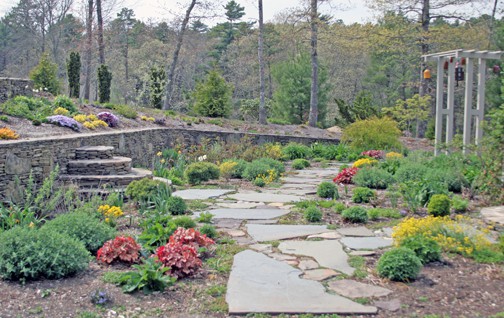Report From PIA – May 2
The second day in Gifts From The Garden Month is dedicated to appreciating how the garden offers us a widow into the natural world. Some might be content with planting their geraniums and Dracaena spikes every year and not thinking any more about what’s going on. Taking this approach is an opportunity lost.
Using the landscape as a classroom, you become privy to the myriad of plants and how they grow. You witness miraculous adaptations and variations, all designed to insure survival of each plant and the continuation of its genetic material on the planet.
Watching how plants work in our own gardens, and learning about them from the work of botanists, horticulturalists and other researchers, makes us better gardeners and enriches our lives.
I’ve learned, for example, that the plants in my spring garden are at a low point in their energy reserves. They stored up carbohydrates last summer and fall, and by this time of year much of those stores have been used. My perennials, shrubs and even the lawn are using the last of their stored energy to break dormancy. This is why it doesn’t make sense to apply synthetic fertilizers in the early spring… the plants aren’t using such nutrients from the soil just yet.
This is another reason that organic fertilizers make more sense – if you need to fertilize at all. But that’s a topic for another day.
Socrates said “The unexamined life is not worth living.” Everywhere we turn in life there is something to learn.

These perennials in my front yard are using the last of their stored energy to break dormancy and grow. Soon their systems will be up and running, and energy production and reproduction will begin. My job as gardener is to water if needed, keep weeds from taking over, and appreciate the entire enterprise, not to try and hurry things along with a synthetic fertilizer.

